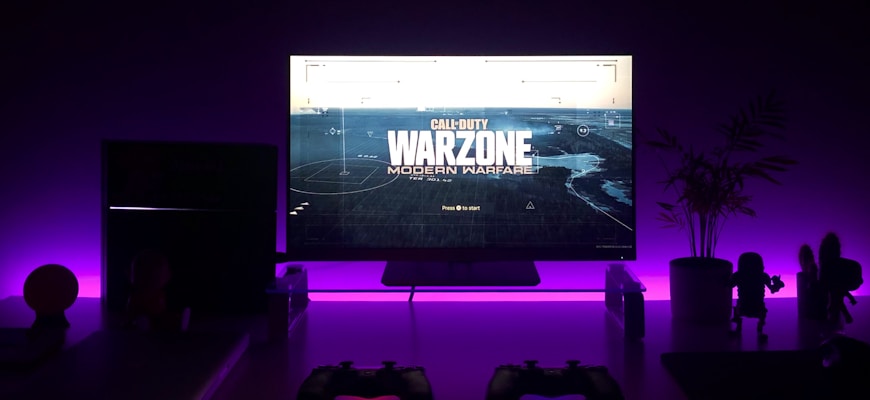How Blockchain Technology is Transforming the Gaming Industry

- Introduction to Blockchain Technology in Gaming
- Benefits of Implementing Blockchain in the Gaming Industry
- Enhancing Security and Transparency through Blockchain
- Impact of Blockchain on In-game Assets and Virtual Economies
- Integrating Decentralized Platforms for Gaming Communities
- Future Trends and Opportunities for Blockchain in Gaming
Introduction to Blockchain Technology in Gaming
Blockchain technology has been making waves in various industries, and the gaming sector is no exception. This innovative technology is revolutionizing the way games are developed, played, and monetized. By leveraging blockchain, game developers can create decentralized games that offer players more control and ownership over in-game assets. This shift towards decentralization is reshaping the gaming landscape and opening up new possibilities for both developers and players.
Benefits of Implementing Blockchain in the Gaming Industry
Implementing blockchain technology in the gaming industry can bring about numerous benefits for both players and developers. Some of the advantages of integrating blockchain in gaming include:
- **Enhanced Security:** Blockchain technology offers a decentralized and secure way to store data, making it nearly impossible for hackers to manipulate or breach the system.
- **Transparency:** The use of blockchain ensures transparency in gaming transactions, allowing players to verify the fairness of the games they are participating in.
- **Reduced Costs:** By eliminating intermediaries and streamlining processes, blockchain can help reduce transaction fees and overall operational costs for gaming companies.
- **Tokenization:** Blockchain allows for the creation of unique in-game assets that players can own and trade, adding value and uniqueness to the gaming experience.
- **Smart Contracts:** Smart contracts enable automated and trustless execution of agreements, such as in-game purchases or rewards, enhancing the overall gaming experience.
- **Increased Privacy:** Blockchain technology can provide players with greater control over their personal data, ensuring privacy and security in gaming interactions.
Overall, implementing blockchain in the gaming industry has the potential to revolutionize the way games are developed, played, and monetized, leading to a more secure, transparent, and engaging gaming ecosystem for all stakeholders involved.
Enhancing Security and Transparency through Blockchain
Blockchain technology is playing a crucial role in enhancing security and transparency within the gaming industry. By utilizing blockchain, game developers are able to create secure and tamper-proof systems that protect user data and transactions. This level of security is essential in an industry where players often invest significant time and money into virtual assets.
One of the key benefits of blockchain technology in gaming is the ability to provide transparent and verifiable transactions. Through the use of smart contracts, all transactions can be recorded on the blockchain, allowing players to track the flow of assets and verify the fairness of the game. This increased transparency helps to build trust among players and developers, ultimately leading to a more robust gaming ecosystem.
Furthermore, blockchain technology can also help combat issues such as fraud and cheating within games. By leveraging the decentralized nature of blockchain, developers can create systems that are resistant to manipulation and hacking. This ensures a level playing field for all players and helps to maintain the integrity of the gaming experience.
Overall, the integration of blockchain technology in the gaming industry is revolutionizing the way games are developed and played. With its emphasis on security and transparency, blockchain is reshaping the industry for the better, creating a more trustworthy and enjoyable experience for all involved.
Impact of Blockchain on In-game Assets and Virtual Economies
Blockchain technology has had a significant impact on in-game assets and virtual economies within the gaming industry. By leveraging blockchain, game developers and players alike are experiencing a revolution in how digital assets are owned, traded, and utilized in virtual worlds.
One of the key benefits of blockchain in gaming is the concept of true ownership. Through the use of blockchain technology, players have the ability to truly own their in-game assets. This means that items such as skins, weapons, or even entire characters are secured on the blockchain, giving players full control over their digital belongings.
Moreover, blockchain has introduced the idea of interoperability between games. This means that assets can be transferred or used across multiple games that support the same blockchain protocol. Players can now take their hard-earned items from one game and use them in another, creating a seamless experience and increasing the overall value of in-game assets.
Another significant impact of blockchain on in-game assets is the transparency it brings to virtual economies. With transactions recorded on a decentralized ledger, players can easily verify the authenticity and scarcity of digital items. This not only reduces the risk of fraud but also promotes trust within the gaming community.
Overall, the integration of blockchain technology in gaming has paved the way for new opportunities and advancements in the way in-game assets are managed and traded. As more developers and players embrace this technology, the gaming industry is set to undergo a transformation that will shape the future of virtual economies and digital ownership.
Integrating Decentralized Platforms for Gaming Communities
Blockchain technology is revolutionizing the gaming industry by enabling decentralized platforms that empower gaming communities. These platforms provide a transparent and secure environment for gamers to interact, trade in-game assets, and participate in various activities without the need for intermediaries.
By integrating decentralized platforms into gaming communities, developers can create new and innovative ways for gamers to engage with each other. This can include features such as decentralized marketplaces where players can buy, sell, and trade in-game assets securely using blockchain technology. Additionally, decentralized platforms can facilitate community governance, allowing gamers to have a say in the development and direction of the games they love to play.
One of the key benefits of integrating decentralized platforms for gaming communities is the increased trust and security it provides. With blockchain technology, transactions are recorded on an immutable ledger, making it nearly impossible for fraudulent activities to occur. This creates a more fair and transparent environment for gamers to participate in, ultimately enhancing their overall gaming experience.
Furthermore, decentralized platforms can also enable cross-platform compatibility, allowing gamers to use their in-game assets across different games and platforms seamlessly. This interoperability opens up new possibilities for gamers to customize their gaming experience and truly own their digital assets.
In conclusion, the integration of decentralized platforms for gaming communities is a game-changer in the gaming industry. It fosters trust, transparency, and innovation, ultimately empowering gamers to take control of their gaming experiences like never before. As blockchain technology continues to evolve, we can expect even more exciting developments in the intersection of blockchain and gaming.
Future Trends and Opportunities for Blockchain in Gaming
Blockchain technology is poised to revolutionize the gaming industry in the coming years. The future trends and opportunities for blockchain in gaming are vast and promising. One major trend is the use of non-fungible tokens (NFTs) to create unique in-game assets that players can buy, sell, and trade securely on the blockchain. This opens up new revenue streams for game developers and allows players to truly own their digital items.
Another exciting opportunity is the use of blockchain technology to create decentralized gaming platforms where players can compete in a trustless environment. This eliminates the need for intermediaries and ensures that game outcomes are fair and transparent. Additionally, blockchain can be used to create provably fair gambling games, providing players with a level of transparency and security that was previously impossible.
Furthermore, blockchain technology can be used to create new business models for game developers, such as play-to-earn games where players are rewarded with cryptocurrency for their time and skill. This incentivizes players to spend more time in-game and can help drive adoption of blockchain technology in the gaming space. Overall, the future of blockchain in gaming is bright, with endless possibilities for innovation and growth.



